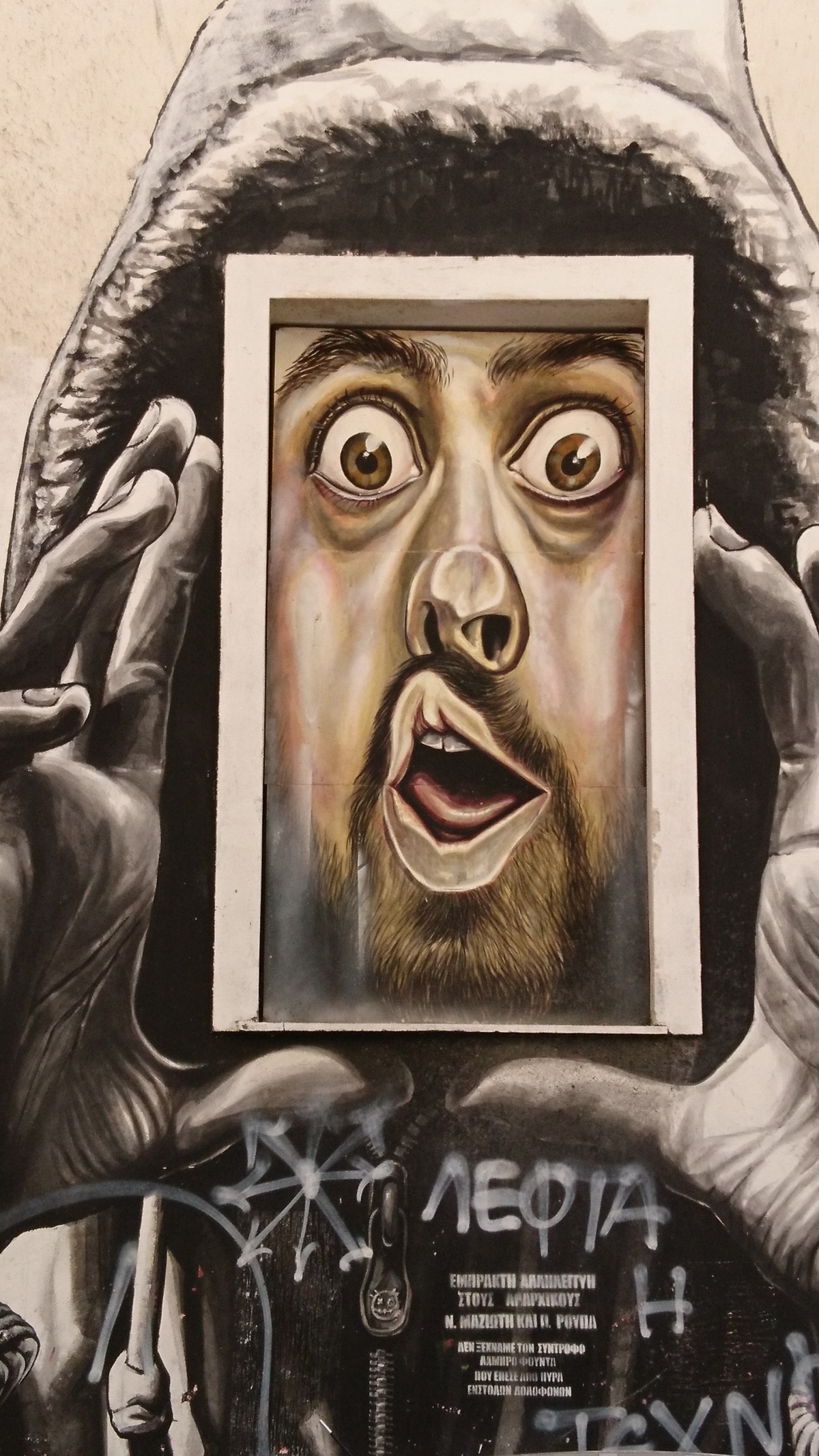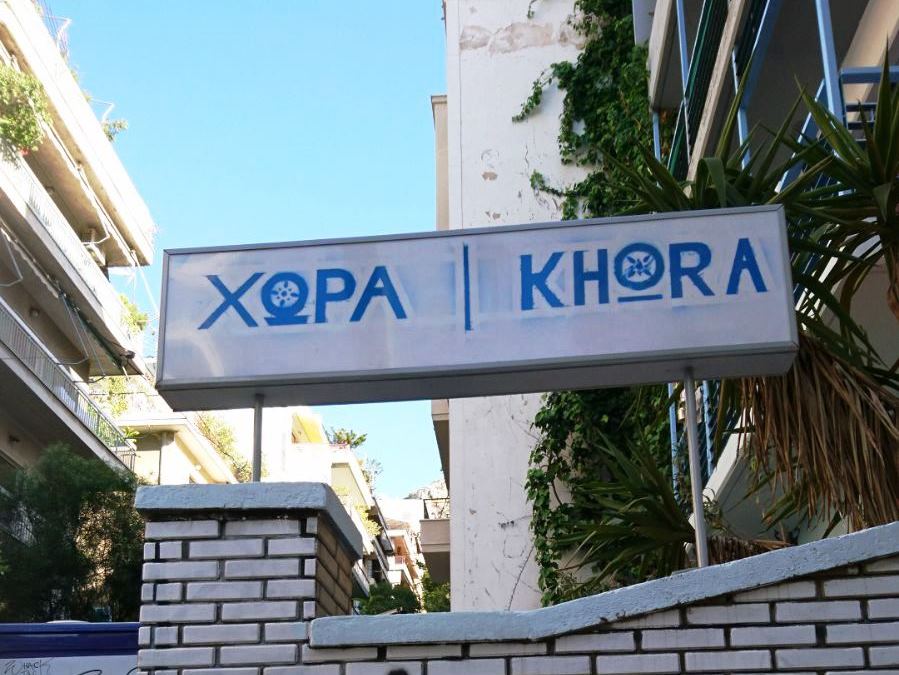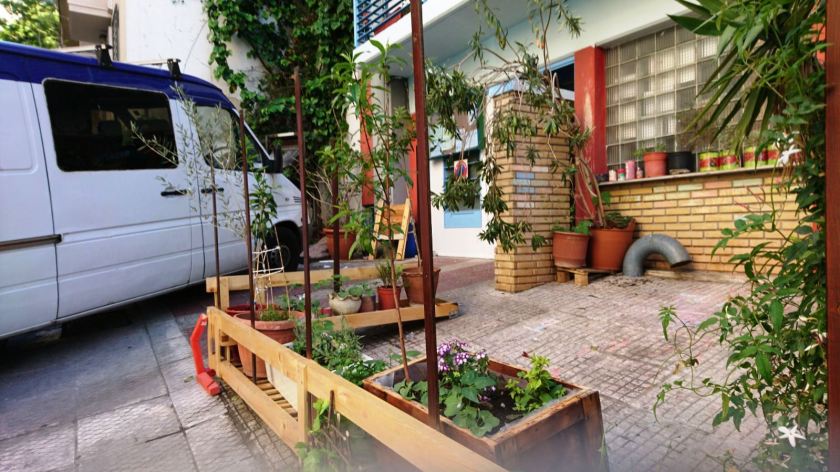My week in Athens is almost over, and I’ll be sorry to leave the amazing people I’ve met here, who have made me feel so welcome. I’m off to finish my MA and collaborate at distance, but I’ll be back at NBS as soon as I possibly can. So much has happened this week. I’ll try to put it in some comprehensible order…
Scale
The scale of the refugee crisis is truly immense. It’s estimated that there are 60,000 displaced people in Greece, most of whom are in the Athens area. I only started to get a real idea of what that means when I visited a camp. One camp alone houses 1,500 people.
Volunteers
There is an incredible community of volunteers here, some of these are refugees themselves. Everyone uses whatever skill-set they have to contribute. They live very simply, give as much of their time as they can, and are constantly working together to get stuff done. I’ve seen people responding to calls at midnight to go to pick someone up or do some other job. They achieve so much: for example Khora community centre feeds 1,000 people a day. These people are practically moving mountains.
One of the problems volunteers have is that if they’re non-EU citizens (as, actually, I will be in the not-so-far-off future thanks to Brexit) they can only stay here for three months after which they have to return to their own country for a certain period before they can come back. I met one teacher who is from the US and has to fly back there (obviously at her own expense) every time her visa runs out, after which she comes right back. As I said, the level of commitment and humanity I’ve seen here is simply mind blowing.
The students
The motivation level of the students is generally high. English is the lingua franca in the camps and outside in Athens. There’s a mix of L1s, mostly Arabic, Farsi and Kurdish speakers, so English is used as a lingua franca between the residents too. English is absolutely essential for them to be able to do anything, which makes them want to learn.
That said, students can get depressed, which can stop them from coming to class. Some people are trapped in their housing as going out would mean running the risk of getting stopped by police, (which because of racial profiling they often are) and being deported back to their country. Thankfully, if they are able to explain themselves in English the police tend to be more lenient.
Many students are multilingual. I met one man from Afghanistan who could speak six languages and subsequently teased me mercilessly about my paltry knowledge of only two! And yesterday an Afghani 8 year-old taught me how to write my name in Greek (see pic).
What’s needed…
What they need most is long term teaching volunteers. A lack of continuity is a clearly a big problem for both the school and the students. It makes assessment of learning progression very difficult. And, as displaced and often vulnerable people, the students need to feel secure and form a trusting relationship with their teacher, which is impossible if someone new is arriving every two weeks.
Most of the teachers that come have had little or no teaching experience and have no teaching qualifications, but lots and lots of generosity and enthusiasm. They need and want support and training. No Border School offers teachers’ workshops open to all teachers in the Athens area. I was fortunate enough to run a couple of these this week on using technology in the classroom. The students here usually have mobile phones and most buildings (apart from the camps) have WiFi, so using apps and Google searches can be a good way to personalise lessons and can make up for a lack of materials. The teachers were very enthusiastic and they’ve asked me to do more sessions.
But my lack of experience in this context means that I’m not able to help them with everything. What they need most of all is ideas on how to teach adult literacy. They find that it’s difficult to keep students engaged while they’re learning to write in our alphabet, as adults aren’t exactly enthusiastic about copying text from the board. They find that the materials available are either aimed at children, or at people who aren’t literate in their own language, which is rarely the case here. I’m afraid I came up blank when they asked me about these issues.
If you can help with any of these things please do get in contact. Thanks for reading. Please share.










